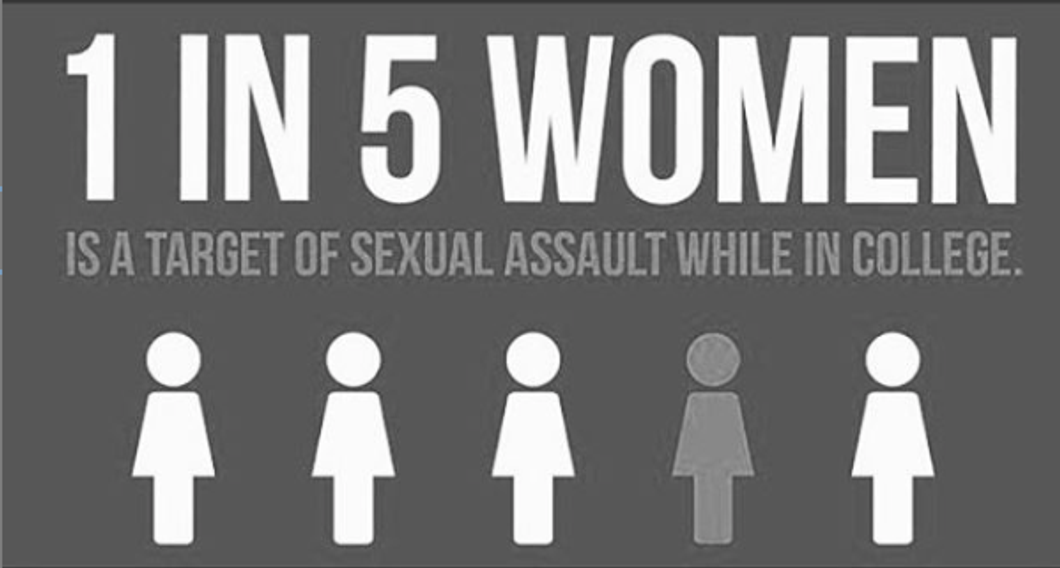If They Don't Say Yes, Then Don't Undress
It's about time we address the real issue with sexual assault.
When anyone reports or asks about a sexual assault, the first question that's asked is,
"Did you consent?"
It's one of the first things college and university campuses "teach" college students.
Well, 1 in 5 women and 1 in 71 men are sexually assaulted every year in America, so apparently, we aren't getting the memo. According to Rape Abuse and Incest National Network (RAINN), "Consent is an agreement between participants to engage in sexual activity."
Vague isn't it.
Plus, the consent laws vary from state to state. For example, in Wisconsin, "'Consent' is defined to mean positive cooperation in act or attitude pursuant to the exercise of free will. The person must act freely and voluntarily and have knowledge of the nature of the act or transaction involved."
In Oklahoma, "Oklahoma does not specifically define consent."
Not acceptable.
Even if you think someone has consented, it's not considered consent if someone is mentally defective, (mentally ill), mentally incapacitated (intoxicated or under the influence of drugs), or physically helpless (unconscious or unaware of what is happening). They often give a long list of what "without consent" is. The most common examples include using force, coercion, or threats.
But again, what constitutes as consent?
Here's the problem with not giving a specific definition to consent - there are too many loopholes. There are too many technicalities. It's a "he said, she said" battle, and unless the assaulter owns his mistake, there is no justice for the victim. An assaulter can say, "well she did it anyway," but leaves out the part where they wouldn't leave their house without performing. They can also say, "she didn't say no," but leaves out the part where the other party was too scared to say anything, and they were afraid of violence. The worst one is, "they let me do A, B, and C," but leaves out the part where they didn't ask or want to do D, E, and F. It's actually disgusting that people make excuses for their poor behavior.
So even though there is a lack of a definition of consent in the law, I'll define it for you here:
Consent is a mutual, verbal agreement between both parties, such as,
"Let's do this."
"I'm down."
"It is ok for you to do that."
Or hell, even something as simple as YES.
If one side of the party doesn't explicitly say it, then no, that isn't consenting. Neither is giving someone an ultimatum, threatening them, or physically forcing them. Consent is yes, and if you can't handle that, then keep it in your pants.
If you have been or think you may have been sexually assaulted, consult with your local police department, and please see the resources I have provided down below. You are never alone.


























